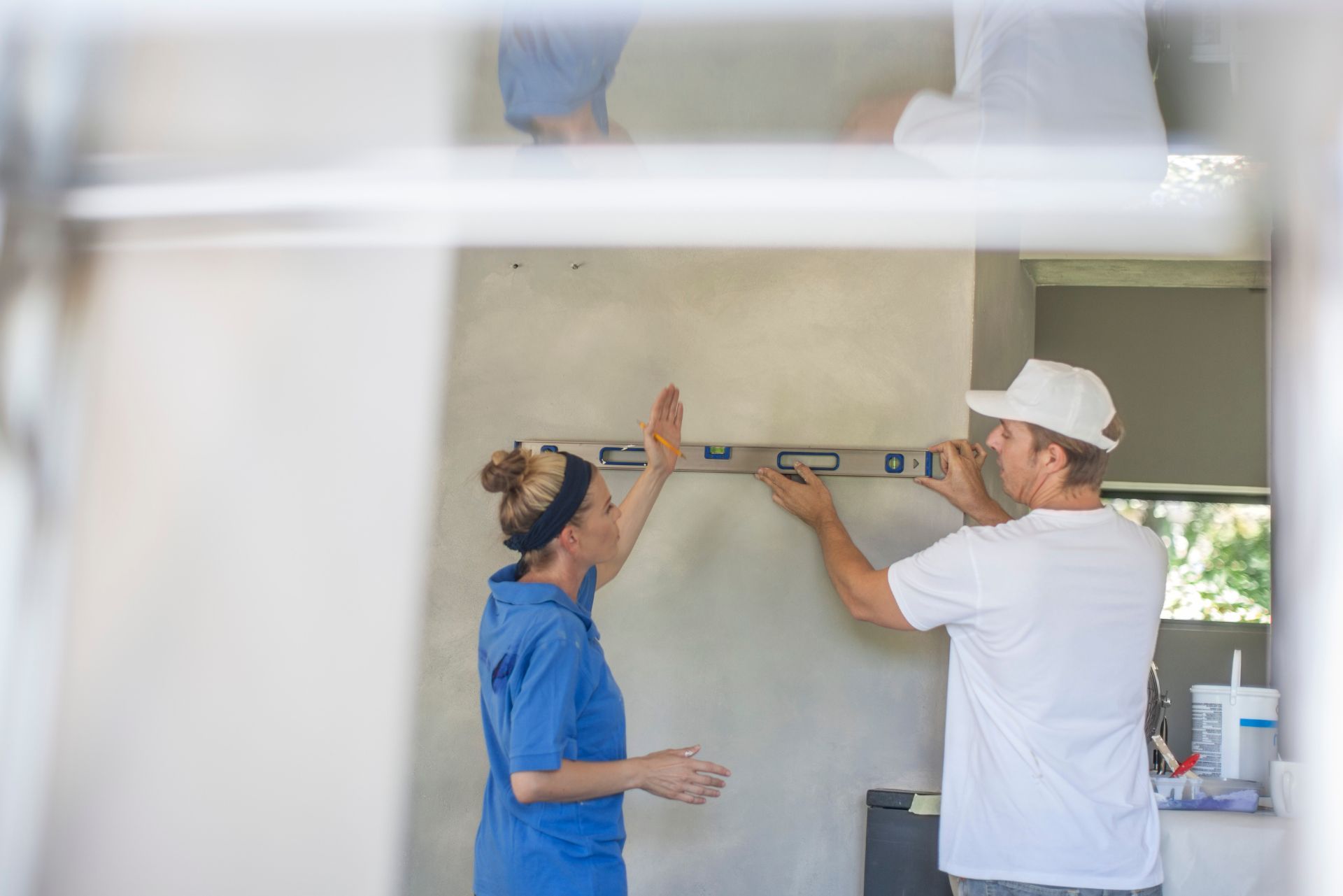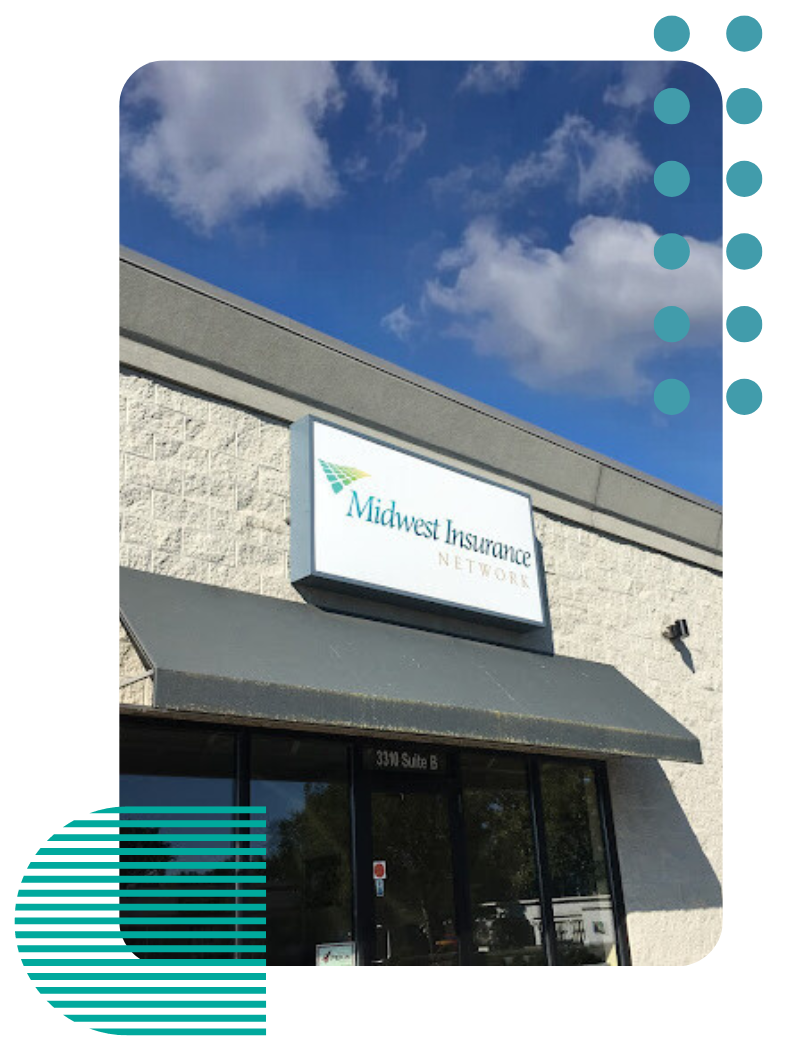Get in touch
419-720-5825
agency@midwest-insure.com
Ohio Signage Installation Contractors Insurance

See How We're Different
or call us: 419-720-5825
Top 3 Recommended Policies
Index
Contact Us
Phone
agency@midwest-insure.com
Location
Northwood, OH
3310 Woodville Road, Suite D
Northwood, OH 43619
Elmore, OH
361 Rice Street
Elmore, OH 43416
In the dynamic world of signage installation, contractors face unique challenges that require not only skill but also a
robust safety net. Ohio, with its bustling commercial landscape, is home to numerous signage installation businesses. Understanding the intricacies of contractors insurance is crucial for protecting your business, employees, and clients. This article delves into everything you need to know about signage installation contractors insurance in Ohio.
Understanding Contractors Insurance
Contractors insurance is a specialized type of coverage designed to protect businesses from various risks associated with construction and installation work. For signage installation contractors, this insurance is vital due to the potential hazards involved in the job, including working at heights, handling heavy materials, and operating machinery. The nature of signage work often requires contractors to navigate complex environments, such as busy urban streets or high-rise buildings, where the risk of accidents is amplified. Therefore, having comprehensive insurance is not just a regulatory requirement but a crucial aspect of operational safety and risk management.
Types of Coverage
There are several types of insurance coverage that signage installation contractors should consider. Each type serves a specific purpose and can help mitigate different risks. Understanding these various types can help contractors tailor their insurance policies to better fit their unique business needs and the specific challenges they face on the job site.
- General Liability Insurance: This is the most fundamental type of coverage. It protects against claims of bodily injury, property damage, and personal injury that may occur during the course of business operations. This coverage is particularly important in the signage industry, where the potential for accidents involving pedestrians or damage to neighboring properties is a constant concern.
- Workers' Compensation Insurance: Essential for any business with employees, this insurance provides benefits to workers who are injured on the job. In Ohio, it is mandatory for most employers. This coverage not only protects employees but also shields the contractor from lawsuits related to workplace injuries, fostering a safer work environment.
- Commercial Auto Insurance: If vehicles are used for transporting materials or equipment, this insurance covers damages resulting from accidents involving company vehicles. Given the nature of signage installation, where contractors may need to travel frequently between job sites, having this insurance is crucial to ensure that both the vehicles and the materials being transported are protected.
- Professional Liability Insurance: Also known as errors and omissions insurance, this protects against claims of negligence or failure to deliver professional services as promised. In the signage industry, where design and execution must meet specific client expectations, this coverage is vital in safeguarding against potential disputes.
Why Insurance is Essential for Signage Installation
Signage installation can be fraught with risks. From accidents involving heavy equipment to potential damage to client property, the liabilities can be significant. Having the right insurance coverage not only protects the contractor financially but also enhances credibility with clients. Clients are more likely to trust a contractor who is adequately insured, as it demonstrates a commitment to professionalism and safety. Furthermore, being insured can be a competitive advantage in the marketplace, as many clients now require proof of insurance before awarding contracts. This requirement can serve as a barrier to entry for less-prepared competitors, allowing well-insured contractors to stand out.
Additionally, the construction and installation industry is subject to various regulations and safety standards that must be adhered to. Insurance not only provides a safety net but also encourages contractors to maintain high standards of safety and compliance. Regular training and adherence to
safety protocols can lead to fewer accidents and claims, ultimately resulting in lower insurance premiums over time. By investing in comprehensive insurance coverage, signage installation contractors can focus on their work with peace of mind, knowing they are protected against unforeseen events that could disrupt their business operations.

Legal Requirements in Ohio
In Ohio, certain types of insurance are legally required for contractors. Understanding these requirements is crucial for compliance and protection against legal repercussions.
Workers' Compensation in Ohio
Ohio law mandates that most employers carry workers' compensation insurance. This insurance covers medical expenses and lost wages for employees who are injured on the job. Failure to comply with this requirement can lead to severe penalties, including fines and legal action. Additionally, it is important for contractors to note that workers' compensation insurance not only protects the employees but also shields the employer from potential lawsuits related to workplace injuries. This creates a safer work environment and fosters trust between employers and their workforce.
General Liability Insurance
While not legally required, general liability insurance is highly recommended for contractors in Ohio. Many clients will require proof of this insurance before hiring a contractor. It protects against various claims that could arise from accidents or damages during the installation process. Furthermore, general liability insurance can cover legal fees in the event of a lawsuit, which can be a significant financial burden for contractors. This type of insurance can also enhance a contractor's credibility, as it demonstrates a commitment to professionalism and accountability, making them more appealing to potential clients.
Commercial Auto Insurance
Another important aspect of insurance for contractors in Ohio is commercial auto insurance. If a contractor uses a vehicle for business purposes, this insurance is essential to cover any damages or liabilities that may occur while driving for work-related tasks. This includes coverage for accidents, theft, or damage to the vehicle itself. Without commercial auto insurance, a contractor may be personally liable for costs associated with accidents, which can be financially devastating. Additionally, some clients may require proof of this insurance before allowing contractors to work on their properties, further emphasizing its importance in maintaining a professional image.
Choosing the Right Insurance Provider
Selecting the right insurance provider is a critical step in ensuring adequate coverage for a signage installation business. Factors to consider include the provider's reputation, the types of coverage offered, and customer service quality.
Researching Insurance Providers
Start by researching various insurance companies that specialize in contractors insurance. Look for reviews and testimonials from other contractors in Ohio. A company with a strong track record in the construction industry is often a good choice. Additionally, consider the financial stability of the insurance provider. Ratings from independent agencies like A.M. Best or Standard & Poor's can give you a clearer picture of the company’s ability to pay claims. It’s also wise to check if they have experience with businesses similar to yours, as this can indicate their understanding of the specific risks associated with signage installation.
Consulting with an Insurance Agent
An experienced insurance agent can provide valuable insights into the specific needs of a signage installation business. They can help assess risks and recommend appropriate coverage options tailored to the unique challenges faced in this industry. Moreover, a good agent will take the time to understand your business model, including the types of signage you install, the materials you use, and the geographical areas you serve. This personalized approach ensures that you are not only compliant with local regulations but also adequately protected against potential liabilities. They can also guide you through the complexities of policy terms and conditions, helping you make informed decisions that align with your business goals.
Cost of Signage Installation Contractors Insurance
The cost of insurance can vary widely based on several factors, including the size of the business, the types of coverage selected, and the contractor's claims history. Understanding these factors can help contractors budget effectively for insurance expenses. Moreover, it is essential for contractors to regularly review their insurance needs as their business evolves, ensuring that they are adequately covered without overpaying for unnecessary policies.
Factors Influencing Insurance Premiums
- Business Size: Larger businesses with more employees and higher revenue may face higher premiums due to increased risk exposure. Conversely, smaller businesses may benefit from lower premiums, but they must ensure they have sufficient coverage to protect against potential liabilities.
- Claims History: A history of frequent claims can lead to higher premiums. Insurers often view this as an indicator of risk. Maintaining a clean claims record not only helps in securing better rates but also reflects positively on the contractor's operational practices.
- Coverage Types: The more comprehensive the coverage, the higher the premium. Contractors should balance the need for coverage with budget constraints. It is advisable to consult with an insurance expert to tailor a policy that meets specific business needs while remaining cost-effective.
Ways to Reduce Insurance Costs
While insurance is a necessary expense, there are ways to reduce costs without sacrificing coverage. Implementing safety training programs for employees can reduce the likelihood of accidents, which may lead to lower premiums over time. Additionally, bundling different types of insurance with the same provider can often result in discounts. Contractors may also consider increasing their deductibles; while this means more out-of-pocket costs in the event of a claim, it can significantly lower monthly premiums.
Furthermore, maintaining a proactive approach to risk management can yield substantial savings. Regular safety audits, equipment maintenance, and adherence to industry regulations not only enhance workplace safety but also demonstrate to insurers a commitment to minimizing risks. This can lead to more favorable insurance terms and potentially lower premiums. Networking with other contractors to share best practices and experiences can also provide valuable insights into effective risk management strategies, ultimately benefiting the bottom line.

Claims Process for Contractors Insurance
Understanding the claims process is essential for contractors to ensure they can effectively navigate any incidents that may arise. Knowing how to file a claim and what information is needed can streamline the process and minimize disruptions to business operations. An efficient claims process not only helps in mitigating financial losses but also ensures that contractors can maintain their reputation and continue to serve their clients without significant interruptions.
Moreover, being well-versed in the claims process can empower contractors to make informed decisions when selecting their insurance policies. Different insurers may have varying claims procedures, and understanding these nuances can lead to better preparedness in the event of an incident. Additionally, contractors should regularly review their coverage to ensure it aligns with the evolving nature of their projects and risks associated with their work.
Steps to File a Claim
- Notify Your Insurance Provider: As soon as an incident occurs, contact your insurance provider to report the claim.
- Document the Incident: Gather evidence, including photos, witness statements, and any relevant documentation related to the incident.
- Complete the Claim Form: Fill out the necessary claim forms provided by your insurer. Be thorough and accurate to avoid delays.
- Follow Up: Stay in contact with your insurance adjuster to track the status of your claim and provide any additional information they may need.
Each of these steps is crucial in ensuring that your claim is processed efficiently. For instance, when documenting the incident, it is advisable to take comprehensive photographs from multiple angles and to create a detailed account of the events leading up to the incident. This level of detail can significantly bolster your case and provide clarity to the claims adjuster. Furthermore, maintaining a log of all communications with your insurer can serve as a useful reference if any disputes arise during the claims process.
Common Reasons for Claim Denials
Claims can be denied for various reasons, including lack of coverage for the specific incident, failure to report the claim in a timely manner, or incomplete documentation. Understanding these potential pitfalls can help contractors avoid common mistakes that lead to denied claims. For instance, some contractors may overlook the importance of reviewing their policy details, which can lead to assumptions about coverage that are not accurate. Regularly consulting with an insurance agent can help clarify any ambiguities in the policy and ensure that contractors are adequately covered for their specific needs.
Additionally, contractors should be aware of the deadlines associated with their claims. Many insurance policies stipulate specific time frames within which claims must be reported, and missing these deadlines can result in automatic denials. Keeping a calendar or reminder system for important dates related to policy renewals and claims reporting can be an effective strategy to ensure compliance with these requirements. By being proactive and informed, contractors can significantly enhance their chances of a successful claims experience.
Best Practices for Signage Installation Contractors
To ensure success and minimize risks, signage installation contractors should adopt best practices in their operations. These practices can enhance safety, improve efficiency, and build a positive reputation in the industry.
Implementing Safety Protocols
Safety should always be a top priority. Contractors should establish clear safety protocols and ensure that all employees are trained in these procedures. Regular safety meetings and drills can help reinforce the importance of safety on the job site. Additionally, providing personal protective equipment (PPE) such as helmets, gloves, and harnesses is essential. Encouraging a culture of safety where team members feel empowered to speak up about unsafe conditions can significantly reduce the risk of accidents. Furthermore, keeping an updated first aid kit and ensuring that staff are trained in basic first aid can be invaluable in emergencies.
Maintaining Proper Equipment
Regular maintenance of tools and equipment is crucial for preventing accidents and ensuring efficiency. Contractors should implement a routine inspection schedule to identify and address any issues before they become significant problems. This includes checking the calibration of power tools, ensuring that ladders are sturdy and free of defects, and keeping vehicles in top condition for transporting signage. Additionally, investing in high-quality equipment can lead to long-term savings and improved performance, as reliable tools are less likely to fail during critical tasks. Keeping an inventory of spare parts can also minimize downtime, allowing contractors to quickly replace worn or damaged components without significant delays in their projects.
Conclusion
In the competitive field of signage installation, having the right insurance coverage is not just a legal requirement; it is a vital component of a successful business strategy. By understanding the nuances of contractors insurance in Ohio, contractors can protect themselves from potential risks and liabilities. From choosing the right insurance provider to implementing safety protocols, each step taken towards securing adequate coverage contributes to the overall success and longevity of the business.
Investing time and resources into understanding and obtaining the right insurance coverage can provide peace of mind, allowing contractors to focus on what they do best—creating impactful signage that meets the needs of their clients.
REQUEST A QUOTE
Get signage installation contractors insurance today!
Signage Installation Contractors Insurance
We will get back to you as soon as possible.
Please try again later.
Midwest Insurance Network is an independent insurance agency offering a one-on-one service for all our insurance clients. We help you navigate the sea of policy options and clarify any questions or concerns you may have along the way.
Quick Links
Services
All Rights Reserved | Midwest Insurance Network.



